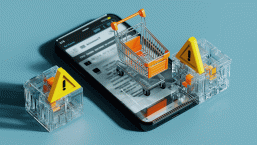“Passwords are done at Google,” said Heather Adkins, Google’s information security chief - and said that “the game is over” for start-ups relying on passwords as the chief method to keep users secure.
Adkins said that within Google, looking towards the future, "Our relationship with passwords is done,” according to a report by CNET. Adkins said that the company was looking to new ways to authenticate users, and mentioned systems manufactured by Google-owned Motorola, which would rely on a chip either held or embedded in clothing.
"A hacker can’t steal that from you,” she said, speaking at a TechCrunch Disrupt panel called Spies Like Us.
Apple’s launch of a biometric fingerprint reader in its iPhone 5S this week sparked gossip that biometric security had finally hit the mainstream - offering another alternative to passwords. Speaking to the BBC, Mark Lockie, of news site Planet Biometrics said, "The industry has been waiting for a moment like this.”
WeLiveSecurity recently reported on another biometric, your heartbeat, and according to Stephen Cobb, Senior Security Researcher with ESET, we may be on the verge of widespread deployment of biometrics. Says Cobb, “Successful implementation of biometrics in a segment leading product could bode well for consumer acceptance.” He adds, “I have been a fan of biometrics as an added authentication factor ever since I first researched multi-factor and 2FA systems 20 years ago, however, user adoption is very sensitive to performance; in other words the iPhone 5S could advance biometrics, or put a whole lot of people off biometrics.”
Earlier this year, Motorola revealed plans for hi-tech authentication systems that could make accessing data faster and easier - including a “tattoo” with embedded sensors and antenna, and an “authentication pill” which turns the human body into a giant authentication token. Both are designed to replace current systems such as typing in four-digit codes on screen.
Regina Dugan, who leads special projects for the Google-owned company, showed off a tattoo, made by company MC10, on her own arm at D11, the All Things Digital conference. Motorola said it planned to work with the company on authentication systems for future smartphones. Dugan previously worked for DARPA (Defense Advanced Research Projects Agency).
"Authentication is so annoying that only about half the people do it,” says Dugan. “Despite the fact that it is a lot of data on your smartphone that makes you far more prone to identity theft. We are thinking about a whole variety of things to make that better. "
Dugan also showed off a pill - reportedly already certified by the FDA - which is powered by a chemical reaction with stomach acid, and produces a machine-readable 18-bit signal which can be used for authentication.
"I take a vitamin every day, why can't I take a vitamin authentication every day?" asked Dugan.




